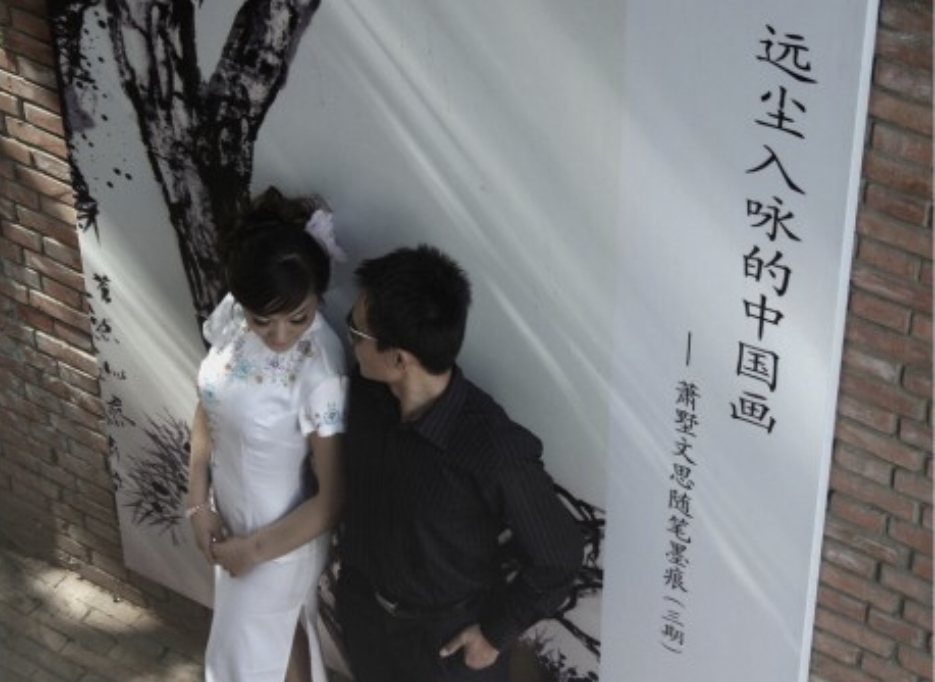学习心得
语风汉语学生Jennifer
学习心得
语风汉语学生Jennifer
我叫Jennifer,我非常喜欢在语风汉语无锡校学习汉语,这是一个非常好的学...
语风汉语无锡校 Zack
学习心得
语风汉语无锡校 Zack
我叫Zack,我是法国人,无锡语风汉教中心是一个学习中国文化和对外汉语的好...
语风汉语学生Kevin
学习心得
语风汉语学生Kevin
语风汉语是一个最理想的学习汉语和中国文化的好地方,学校给我们提供了很多...
语风汉语学生Florent
学习心得
语风汉语学生Florent
我非常喜欢无锡语风汉语学校,这里真的有最简单的汉语学习方法,我学习汉...
语风汉语学生Brad
学习心得
语风汉语学生Brad
我叫Brad,我是澳大利亚人,我再语风汉语学校学习汉语。我现在可以独立和我的...
语风汉语我的无锡学习汉语之路
学习心得
语风汉语我的无锡学习汉语之路
Cherry Queen 中文名: 钱沫以 &nbs...
无锡语风汉语优秀汉语学生Victoria
学习心得
无锡语风汉语优秀汉语学生Victoria
维多利亚Victoria,来自德国的一位11岁的小女孩 ,现读于语...
无锡语风汉语外国学生Michael的汉语学习之路
学习心得
无锡语风汉语外国学生Michael的汉语学习之路
Michael 刚刚来我们无锡语风汉语学校不久的美国学...
苏州汉语学生Jude
学习心得
苏州汉语学生Jude
我叫Jude,在苏州语风汉语学校学习汉语,我也在无锡语风汉语学校学习过很长时间...
无锡语风汉语学校Jessie
学习心得
无锡语风汉语学校Jessie
我学习汉语已经八年了,我能听明白别人说汉语,但是我自己说汉语却觉得说...
汉语 加官方
关注了解更多对外汉语资讯

0510-81151808
1866 1199 988
Sandy.Swun
519988808
无锡新区长江一号 茂业
深茂商务中心8号楼405室
无锡语风学校
语风汉语教学中心
无锡语风国际教育交流中心
Wuxi Mandarin Education School
-
Home > >

Three days ago, the “Third Interpretation of Several Issues concerning The Marriage Law ” was published and promulgated. Just as in the past, every time there’s a modification of “The Marriage Law,” there is a flood of cynical comments and complaints, as if an ethical earthquake has struck the foundation of our marriages and families.
In fact, the only controversy about this modification lies in the seventh item: When parents purchase, at their expense, real estate for their child after he or she is married, and register the property in the name of their child, the property is recognized to be that person’s personal property; if the real estate is purchased by parents of both sides, and the property registration is in the name of one of the spouses, the ownership is in accordance with the investment share of the total of both sides’ parents.One media commentator quipped: “ Men’s parents are laughing while women’s parents are crying,” in response to the new decree. Some people say that from now on, women’s mothers, who used to require that “the boy provide a house as a prerequisite” for marrying their daughters, should now require that “no matter whose parents paid for the house, the girl’s name is to appear in the real estate registration.”
It has been known as a precious rule for urban women: a man with a car, a house, and without living parents, is an ideal partner. Now the concept packs even more punch: if the boy’s parents are both dead, the trouble that accompanies their existence won’t appear. But then of course, women and their parents need to make a lot more effort to make sure that the wife’s name will appear on the real estate certificate.
Before this modification of the Marriage Law, it was stipulated that: when one side of the parents buys real estate for their married child, unless it is clearly expressed that the right is donated to only one party, the ownership of the real estate is presumed to be jointly shared by the couple. In other words, though the new decree makes a totally different interpretation as to how the couple share their rights, particularly in the case of divorce, both laws hold the parents’ will in absolute respect.
In theory, as long as the daughter-in-law or son-in-law fulfills his or her filial piety, the law will not harm either party. Nevertheless, the change of the law reflects changes in Chinese society. For starters, like its super rapid economic development, China has also seen a skyrocketing divorce rate over the past six years. In Beijing, Shanghai and Canton, the divorce rates were 39%, 38%, and 35% respectively at the end of last year, according to Chinese official statistics.
But more generally, people used to care more about family ethics; while nowadays, people pay more attention to individual rights. A husband and a wife are above all two independent civil bodies, before they are a couple identified and connected by the marriage certificate.
In this way, individual rights are independent of the couple’s marital relationship. In some people’s eye, this is a rather cold way, even contrary to public order and public good.
But this reflects the transformation of the judicial meaning of marital law, i.e. if the marriage used to be defined from an ethical point of view, now it’s defined from a contractual perspective.
Some commentators say that the new judicial interpretation of the marital law will change Chinese people’s concepts about marriage itself, as well as the way women choose their husbands, and certain ideas about reproduction.
We should remember that the first document to be drawn up after the birth of the People’s Republic of China in 1949 was The Marriage Law, not the Constitution.
So is the change a bad thing after all? The demand that a man provide a woman with a house before he proposes is in its origin absurd anyway. Though it appeared to protect women’s rights, it in fact puts women in a vulnerable position.
Furthermore, both sexes should be equal and treat each other fairly. When parents have worked hard all their life and buy a house for their married son, it is also unfair that in the case of a divorce, their daughter-in-law could walk away one day with half of the property.
None of this might be acceptable for those who hold a romantic view of marriage. Still, it is the true meaning of the Marriage Law. Not meant to be morality, law is there to define rights. Rather than being a question of the Marriage Law, this debate is a litmus test for one’s very concept about marriage and the world.










